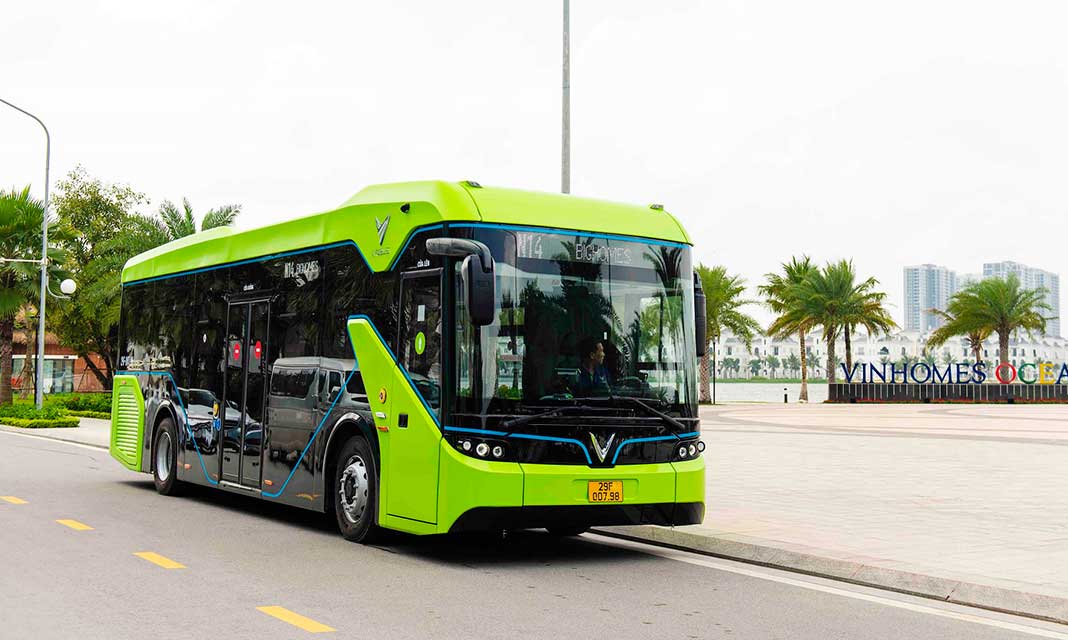HCMC – The Hanoi City government has assigned the Department of Transport to team up with other relevant agencies to develop a roadmap for a green energy transition and carbon dioxide emission reduction program, moving toward using electric buses only.
The city aims to end the use of fossil fuel-powered buses to switch to electric ones in line with the Government’s directives, the local media reported.
Nine months after Hanoi City opened the first nine e-bus routes, these e-buses have attracted many commuters.
In the first half of 2022, the city saw e-buses transport over 122 million passengers. The number of riders is on the rise.
Apart from providing more modern transport services than fossil fuel-powered buses, electric buses are environmentally friendly.
Thai Ho Phuong, deputy director of the Hanoi Public Transport Management Center, said that the city would operate six new bus routes using electric vehicles this year and more in the coming years.
To facilitate the smooth shift to electric buses, the Hanoi Transport Corporation, the city’s major public passenger bus service provider, has proposed Hanoi City quickly issue a roadmap for the transition so that public passenger transport service providers can operate their services according to the city’s plan.
Besides, the city should stably subsidize public transportation each year and support public transportation service providers in terms of loans for investment in e-buses and e-bus infrastructure, while gradually switching to electric buses, said the firm.
Under a decision issued by the prime minister on the green energy transition strategy, Vietnam will see electric vehicles account for at least 50% of all vehicles by 2030, while 100% of buses and taxi cabs will be powered by electricity or clean energy by 2050.









